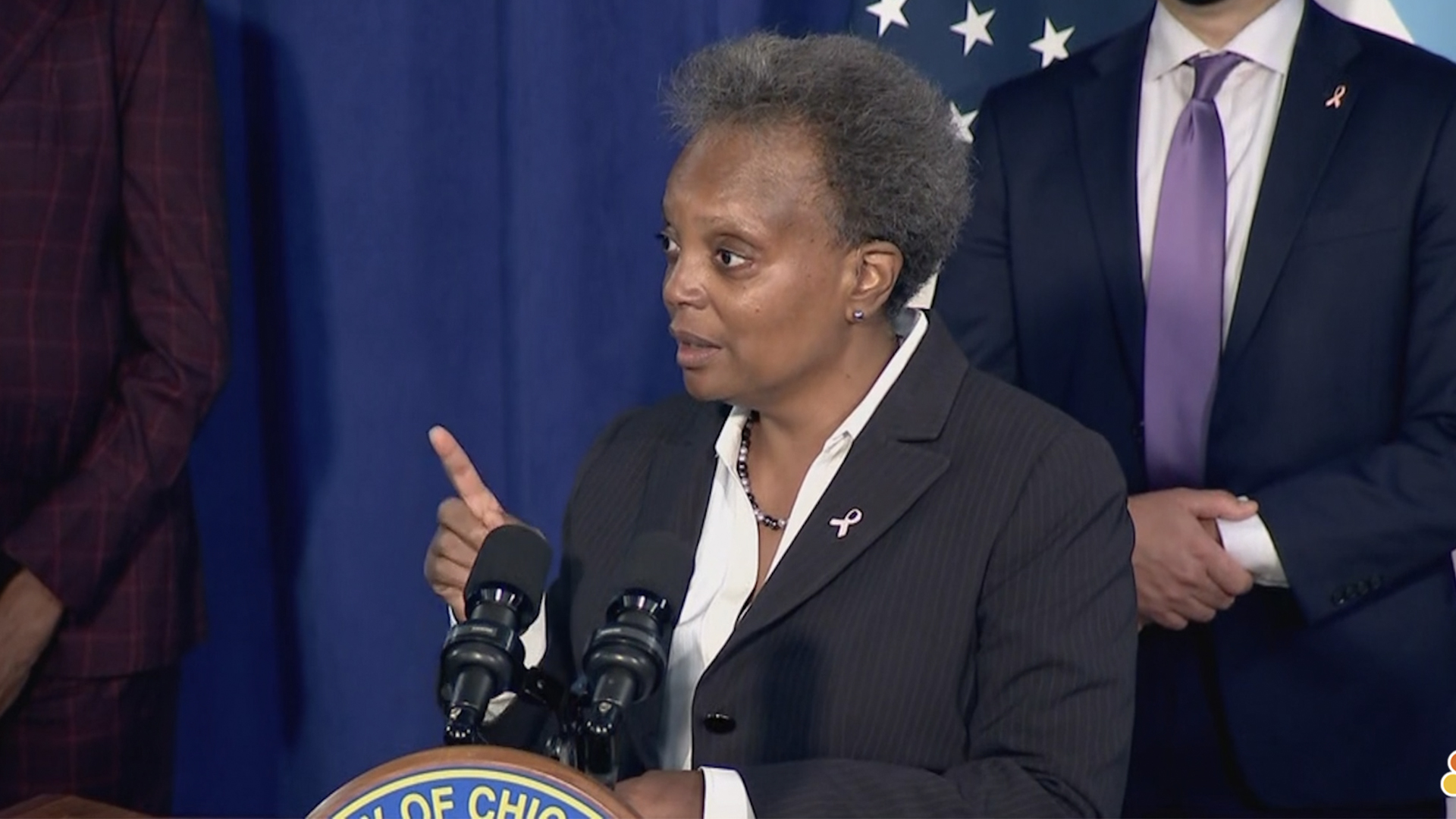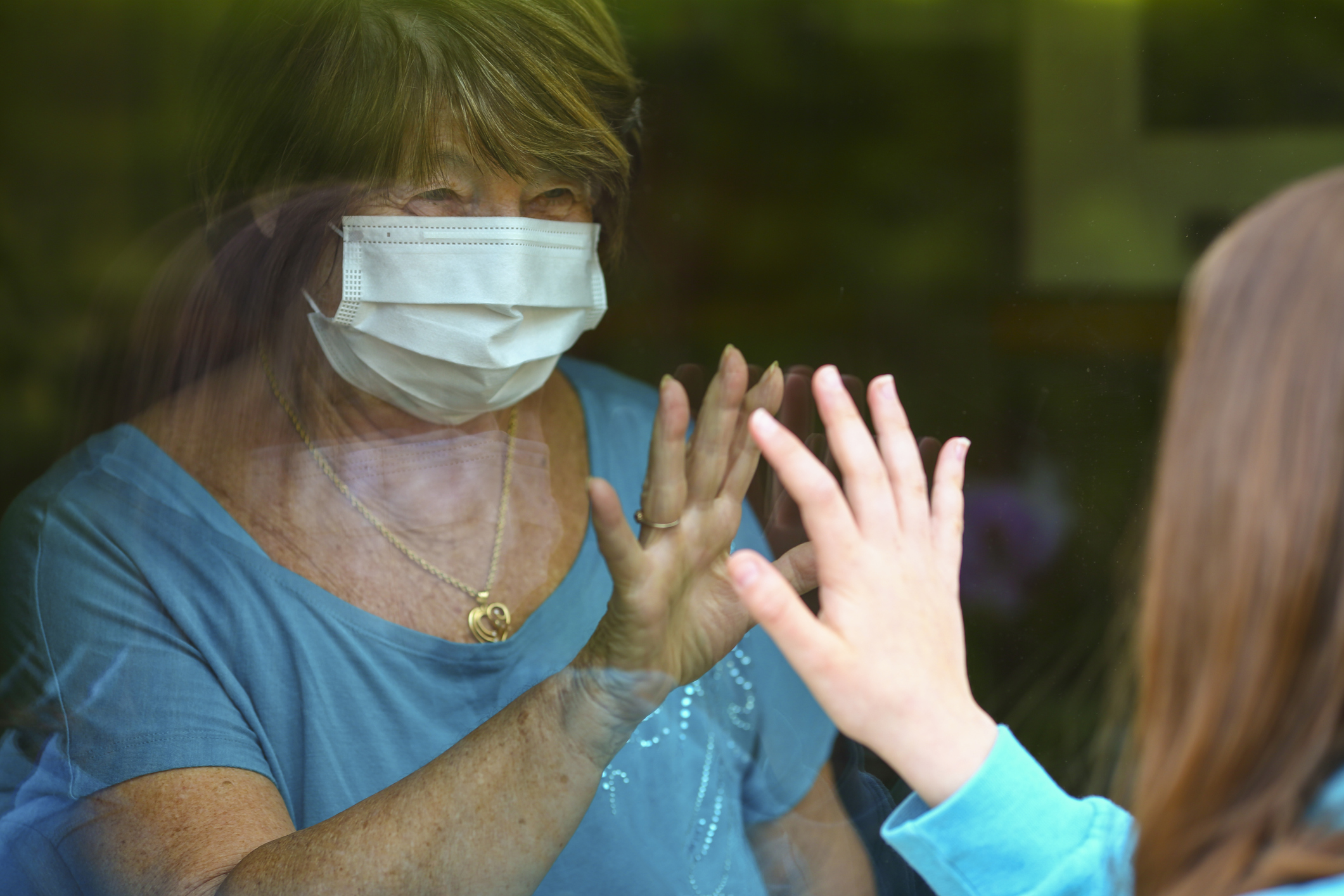Two more states were added back onto Chicago's travel advisory Tuesday, bringing the number of states on the city's warning list to 42 states, plus the District of Columbia, in the lead-up to the Christmas holiday.
California and Mississippi were all added back onto the advisory this week, the city's health department announced, but no states were removed.
Chicago Department of Public Health Commissioner Dr. Allison Arwady said the increase in states comes as "the country is surging again."
As of Tuesday, every state or territory except for Alabama, Florida, Georgia, Guam, Hawaii, Louisiana, Puerto Rico, South Carolina, Texas, and the Virgin Islands are on the travel advisory.
States are added to the advisory's "orange list" when COVID metrics rise above the threshold of 15 cases per day per 100,000 people. Any below that mark are on the "yellow" list, with public health officials still warning against non-essential travel.
“This week’s data is not surprising to anyone who has been tracking it day-to-day, as we have at CDPH,” Arwady said. “The highest COVID rates are currently in the Midwest and New England, but this week two warm weather states – California and Mississippi – are back on the advisory. Don’t assume you’ll be fine if you travel someplace warmer than the Midwest. The only way to ensure you’re protected as well as you can be, is to be fully vaccinated and wear a mask when you’re around other people in public.”
Just before the Labor Day, the city updated its guidance for what unvaccinated travelers visiting or returning from locations on the advisory should do, adding new testing and quarantining recommendations before and after travel.
According to the city, before travel, unvaccinated individuals should:
- Get tested 3-5 days prior to departure.
Feeling out of the loop? We'll catch you up on the Chicago news you need to know. Sign up for the weekly> Chicago Catch-Up newsletter.
While traveling:
- ALL individuals regardless of vaccination status should wear a mask on planes, buses, trains, and other forms of public transportation traveling into, within, or out of the United States and while indoors at U.S. transportation hubs such as airports and stations.
- In Chicago, wear a mask in all indoor public settings, regardless of vaccination status.
- Avoid crowds, try to stay at least 6 feet/2 meters (about 2 arm lengths) from anyone who is not traveling with you, and wash your hands often or use hand sanitizer (with at least 60% alcohol).
After travel, unvaccinated individuals should:
- Get tested with a viral test 3-5 days after travel AND stay home and self-quarantine for a full 7 days.
- Even if you test negative, stay home and self-quarantine for the full 7 days.
- If your test is positive, isolate yourself to protect others from getting infected.
- If you don’t get tested, stay home and self-quarantine for 10 days after travel.
- Avoid being around people who are at increased risk for severe illness for 14 days, whether you get tested or not.
The city advised all travelers to monitor themselves for COVID-19 symptoms and isolate and get tested if they develop any after travel.
"We have seen and know that travel is a significant risk factor for acquiring COVID," Arwady said. "If you decide not to get tested, the recommendation is actually to stay home and self quarantine for 10 days after travel, and you should avoid being around anybody who has an increased risk for severe COVID outcomes for 14 days after travel regardless of whether you get tested or not. Obviously we want anybody who's traveling to self monitor for COVID symptoms and get tested if you develop symptoms."
This week's update to the travel advisory comes at a time when the average daily number of new cases in Chicago sat at 903 per day - down slightly from the 918 seen the previous week, though Arwady said it remains "really quite a high rate compared to where we were prior to Thanksgiving."
That figure is much higher than the low of 34 the city saw in late June and now exceeds the more than 700 cases per day the city was seeing during the most recent surge earlier this year.
City data showed hospitalizations are down 32% from the previous week, but Arwady said that figure is actually much higher due to a lag in hospitalization reporting. Deaths are down by 11% since last week, per the city's data, but Arwady again noted the numbers remain "higher than we've been." The positivity rate in testing rose to 4.2% this week, up from 4.1% the week prior.
The travel advisory is updated every Tuesday, with any changes taking effect the following Friday.



